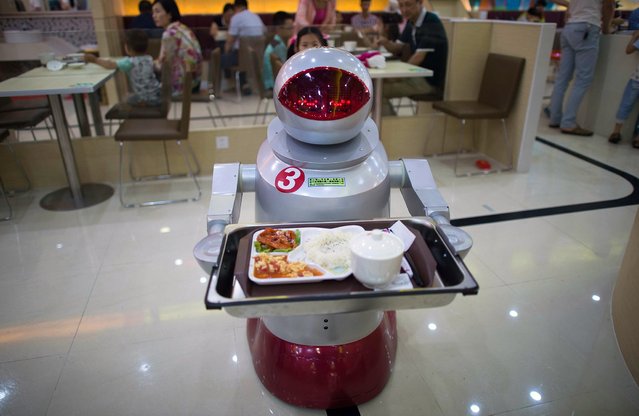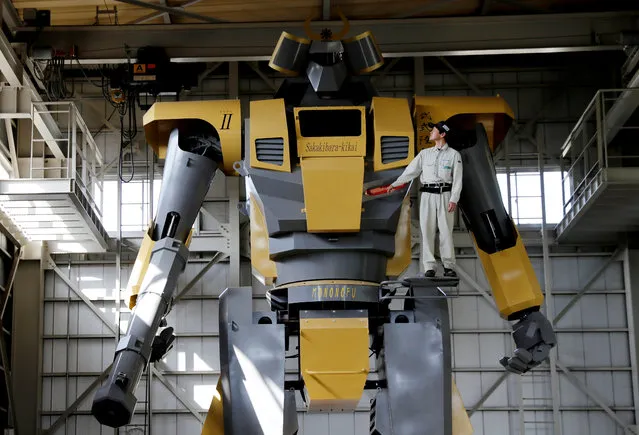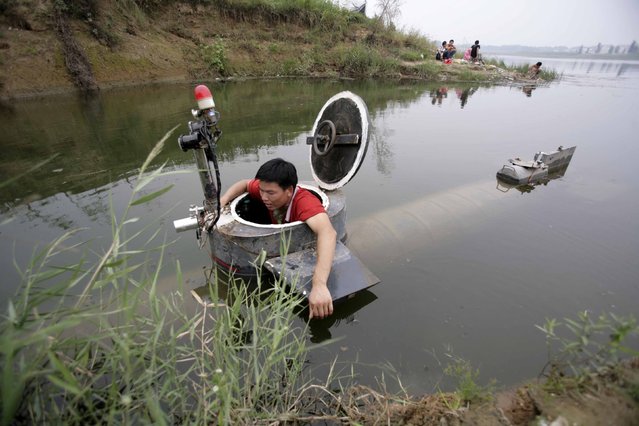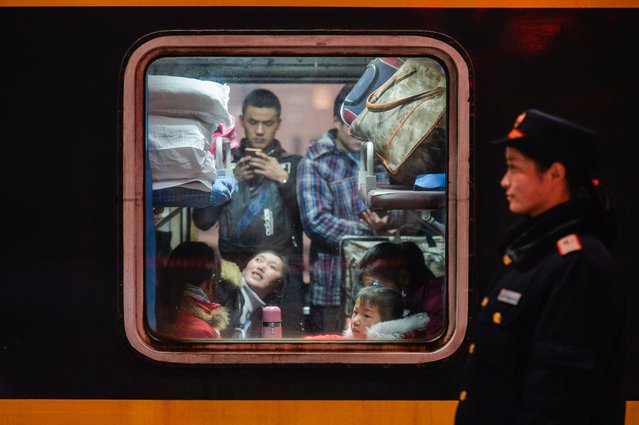
A life-size robot named “Mark 1”, built by product and graphic designer Ricky Ma, 42, is seen in Hong Kong, China March 31, 2016. Ma, a robot enthusiast, spent a year-and-a half and more than HK$400,000 ($51,000) to create the humanoid robot, which is modelled after a Hollywood star, to fulfil his childhood dream. The eyes of the robot include face and color tracking functions. (Photo by Bobby Yip/Reuters)
02 Apr 2016 09:38:00,post received
0 comments







